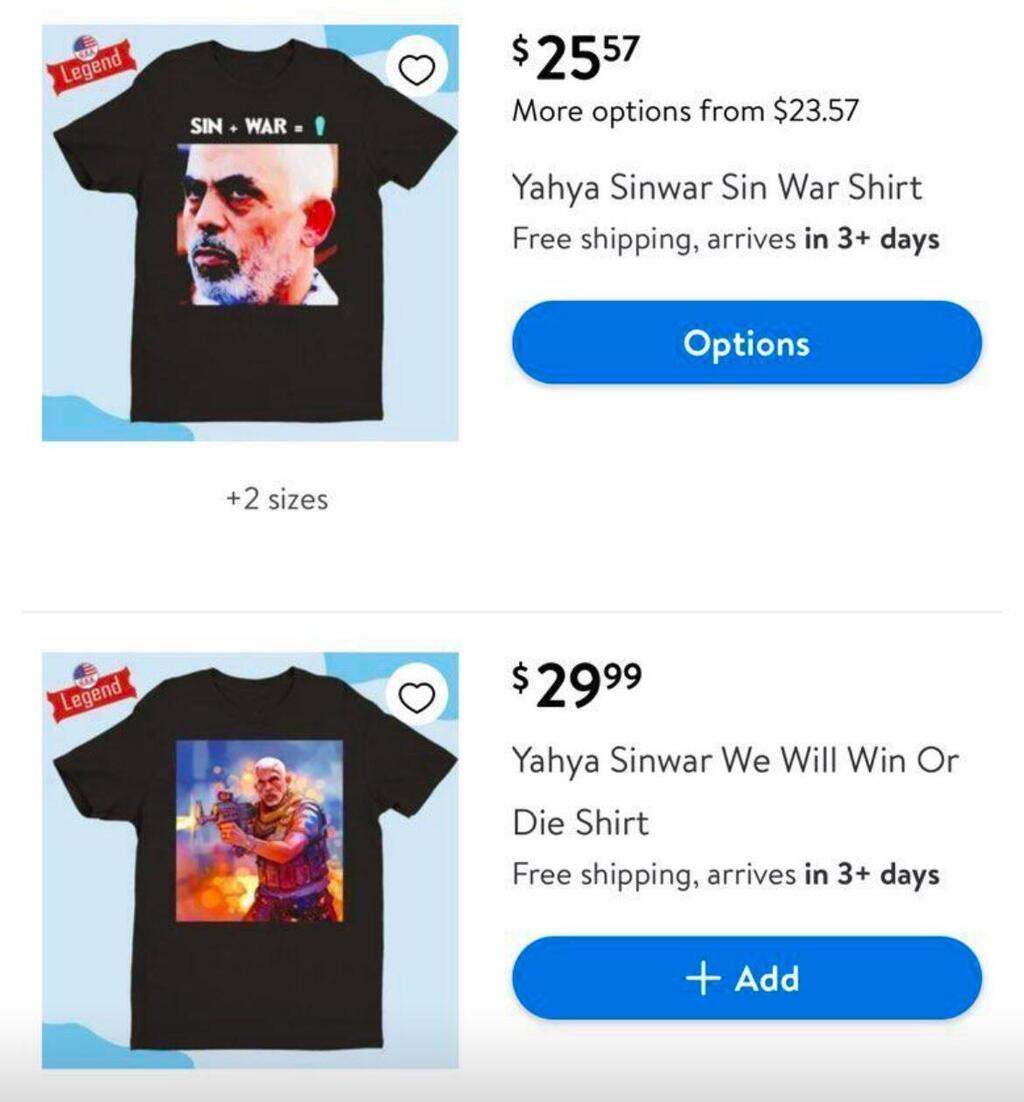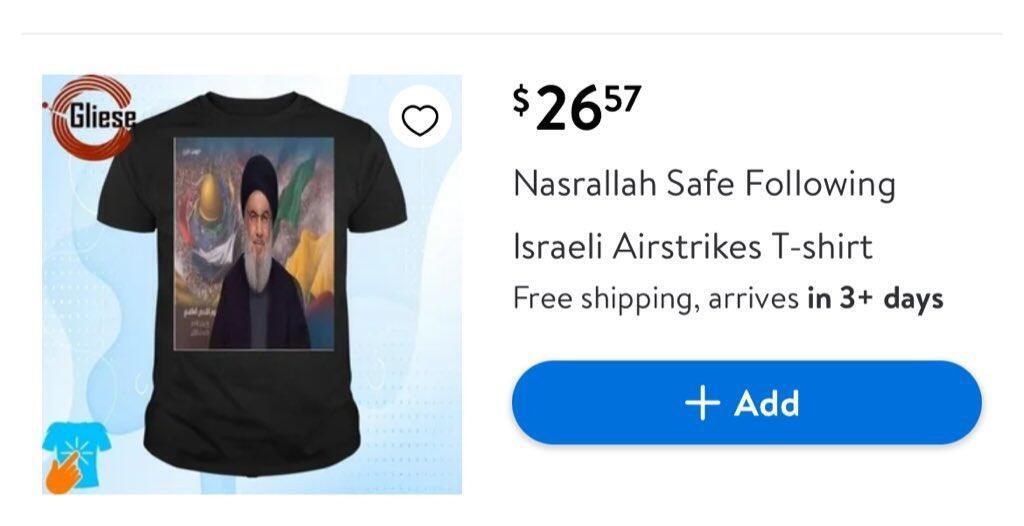Getting your Trinity Audio player ready...
American retail giant Walmart has come under fire after offering T-shirts featuring images of former Hamas and Hezbollah leaders, Yahya Sinwar and Hassan Nasrallah, for sale on its website, priced between $25 and $30.
The controversy was brought to light on Tuesday morning by the X account StopAntisemitism. While some of the Sinwar-themed T-shirts have reportedly been removed from the platform, designs featuring Nasrallah—against the backdrop of the Temple Mount in Jerusalem and surrounded by a Palestinian flag—are still available for purchase as of now.
Since October 7, the fashion world has become a battleground for political and social statements, with T-shirts and stickers either supporting or condemning Israel or Hamas.
Slogans such as “From the River to the Sea” have appeared on products sold on platforms like Amazon and Etsy. Additionally, designs glorifying Palestinian terrorists, including T-shirts featuring Leila Khaled—a figure involved in the attempted hijacking of an El Al flight in 1970—have sparked similar outcry. These designs were created by James Harr, a designer behind the brand Comrade Workwear.
Both Hamas and Hezbollah, formerly led by slain leaders Sinwar and Nasrallah respectively, are classified as terrorist organizations under U.S. law, which prohibits providing “material support” to terrorist groups. This includes the sale of goods, services or anything that could be perceived as promoting or encouraging their activities.
However, designers of such merchandise often defend their work as artistic expression, protected under free speech laws. Furthermore, there is no evidence that proceeds from these products directly benefit the organizations in question.
Protest and politically charged T-shirts are far from a new phenomenon. They gained traction during the Vietnam War in the 1960s and have since become a cultural staple. Their simple design, comfortable cotton fabric and ease of mass production have transformed them into wearable billboards for social and political messages.
Get the Ynetnews app on your smartphone: Google Play: https://bit.ly/4eJ37pE | Apple App Store: https://bit.ly/3ZL7iNv
From a consumer perspective, this raises questions about the responsibility of major retailers in curating the content they sell. Should platforms like Walmart, Amazon and Etsy take a stronger stance on potentially controversial or divisive merchandise? Or do artistic freedom and free speech outweigh the implications of such products in the marketplace? As the debate continues, it’s clear that the intersection of commerce, politics and personal expression is becoming increasingly complex.




